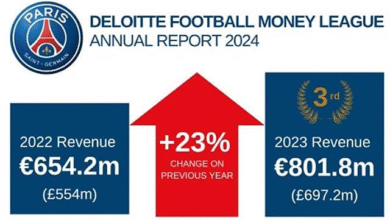Apple AI Challenges After F1 Success: What’s Next?
Apple AI challenges have emerged as a significant concern juxtaposed against the company’s recent triumphs, including the blockbuster success of ‘F1.’ Despite the exhilaration surrounding this cinematic achievement, Apple faces scrutiny regarding its artificial intelligence developments revealed at the WWDC announcements. The anticipation surrounding Apple’s innovations in AI technology has been met with disappointment, particularly regarding the expected upgrades to Siri, which have been postponed significantly. This stark contrast between Apple’s accomplishments in the movie industry and its AI strategy highlights the need for a robust reinvention of its approach to compete in the growing landscape of AI technology competition. While the company excels in delivering major entertainment success, it must urgently address its shortcomings in AI to maintain its competitive edge in both technology and consumer expectations.
The hurdles Apple faces regarding its artificial intelligence initiatives highlight a broader issue within its innovation strategy. Although the company has made a remarkable impact in the film sector, particularly through its groundbreaking release of ‘F1,’ the anticipation for advancements in its AI capabilities remains largely unfulfilled. The challenges surrounding Siri’s performance and Apple’s overall AI framework underscore the urgent need for the tech giant to revitalize and innovate in this rapidly evolving field. As industry leaders like Google and Microsoft push forward in AI technology integration, Apple risks losing its stronghold without a strategic plan to enhance its technological offerings. With a critical eye on its AI ambitions, Apple must prioritize real improvements to ensure it does not lag behind its rivals in the tech arena.
Apple F1 Success: A Contrast to AI Challenges
Apple’s recent triumph with its movie ‘F1’ showcases the company’s ability to execute well-planned projects and deliver quality entertainment to audiences. The film’s robust box office debut, raking in over $155 million, is a testament to Apple’s marketing prowess and the industry connections it has built over years with Hollywood players. This victory not only strengthens Apple’s position in the entertainment sector but also serves as a solid foundation for potential future projects, enabling the company to explore innovative stories and invest in emerging talent. However, while the success of ‘F1’ dazzles, the underlying challenges in Apple’s AI initiatives paint a contrasting picture of its strategic direction in technology areas like artificial intelligence and smart assistants.
As the movie ‘F1’ draws viewers and acclaim, it starkly highlights the shortcomings faced by Apple’s AI features, particularly Siri. Many industry observers note that despite being a pioneer in voice recognition technology, Siri has failed to evolve at the same pace as competitors like Google Assistant or Amazon’s Alexa. The significant gap in AI innovation leaves Apple scrambling to catch up to competitors who have continually integrated cutting-edge AI capabilities, showcasing effective conversational abilities and complex task management. This juxtaposition of creative success in film versus a stagnant trajectory in AI raises critical questions about Apple’s long-term strategy and its commitment to innovation in essential sectors.
Frequently Asked Questions
What are the main Apple AI challenges highlighted by recent developments?
The main Apple AI challenges include delays in the rollout of Apple Intelligence, unsatisfactory updates to Siri, and growing competition from advanced AI technologies like OpenAI’s ChatGPT. Analysts note that Apple’s AI efforts have not kept pace with market expectations, particularly in enhancing Siri’s conversational capabilities.
How does Apple’s recent success with ‘F1’ affect perceptions of its AI challenges?
While Apple achieved significant success with ‘F1,’ grossing over $155 million, this victory contrasts sharply with its AI challenges. The enthusiasm for the film marks Apple’s strength in diversified services, but the lukewarm response to its AI announcements at WWDC shows the need for urgent improvement in AI technologies.
Why are Apple’s AI developments, like the Siri upgrade, critical for its future?
Apple’s AI developments, particularly the Siri upgrade, are essential because they represent the company’s commitment to remain competitive in an increasingly AI-driven market. As consumers expect more sophisticated interactions, enhancing Siri’s capabilities is crucial for retaining customer loyalty and boosting device sales.
What impact does competition in AI technology have on Apple?
The competition in AI technology significantly pressures Apple to innovate rapidly. With competitors like Google aggressively advancing their AI assistants, Apple risks losing ground if it fails to enhance its AI offerings and maintain its reputation for high-quality technological advancements.
How are Apple’s decisions on AI technology reflecting its strategic direction?
Apple’s contemplation of utilizing external AI technologies from companies like Anthropic or OpenAI contrasts with its historical approach of controlling core technologies. This shift suggests Apple recognizes the need to accelerate its AI efforts to keep pace with competitors, challenging its foundational strategy of technological ownership.
What role does the upcoming WWDC play in addressing Apple AI challenges?
The upcoming WWDC is crucial for Apple as it sets expectations for advancements in Apple Intelligence and Siri enhancements. Effective communication of significant AI developments during this event can help reassure investors and consumers of Apple’s commitment to overcoming its AI challenges and staying competitive.
Can Apple’s success in the movie industry influence its AI ventures?
Apple’s success in the movie industry, exemplified by ‘F1,’ can positively influence its AI ventures by demonstrating its ability to execute long-term projects effectively. This successful framework may provide valuable insights as Apple seeks to revitalize its AI initiatives and develop more robust products.
| Key Points |
|---|
| Apple’s ‘F1’ marks a major success yet highlights ongoing difficulties in AI development. |
| The contrast between the blockbuster success of ‘F1’ and the lackluster AI responses showcases Apple’s mixed strategy. |
| Apple has committed to long-term projects like Apple TV+, demonstrating resilience in the entertainment sector. |
| Recent AI announcements at WWDC received muted responses, emphasizing pressure for improvements in AI capabilities. |
| Challenges persist with Siri and the perceived need to revamp its engine could involve external AI partnerships. |
| Competitors like Google are advancing quickly; Apple must prioritize AI innovation to maintain its market position. |
| Apple’s potential reliance on external AI technology could represent a shift in its strategy, raising concerns among investors. |
Summary
Apple AI challenges become increasingly evident as the tech giant contemplates a shift in its AI strategy. While the success of ‘F1’ demonstrates Apple’s potential in the entertainment sector, its struggles with AI development, particularly with Siri, highlight a pressing need for improvement. As competitors aggressively enhance their AI capabilities, Apple must focus on long-term strategies and innovative solutions to remain a leader in the tech industry.




